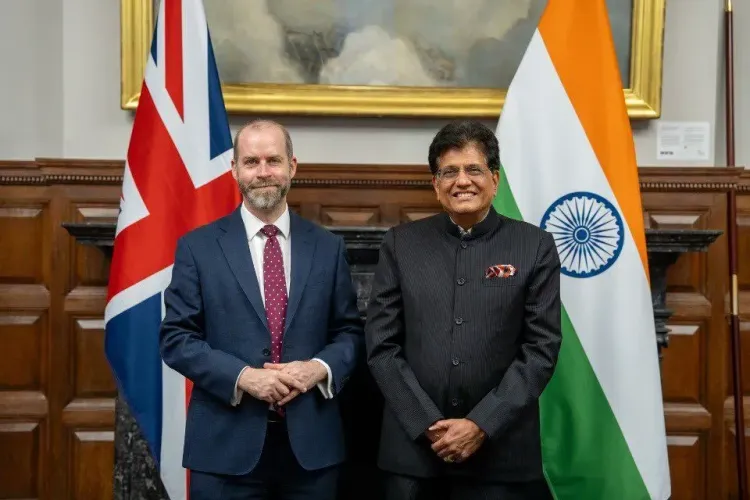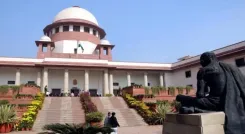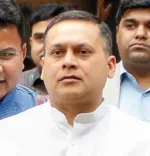Will the India-UK FTA Boost Bilateral Trade and Investment Opportunities?

Synopsis
Key Takeaways
- India-UK FTA aims to double trade in five years.
- Agreement fosters stability and predictability in bilateral relations.
- Potential for increased investments in both economies.
- Collaboration in innovation and supply chains is encouraged.
- Focus on cultural exchange and collaboration.
London, June 19 (NationPress) Union Minister of Commerce and Industry Piyush Goyal emphasized the advancements and execution of the India-UK free trade agreement during his address at the India Global Forum (IGF) here. Speaking at the IGF alongside his UK counterpart Jonathan Reynolds, the Indian minister pointed out the immense opportunities that the India growth narrative presents for the UK, highlighting how businesses on both sides can tap into their complementary strengths for mutual benefits.
Goyal described the FTA as a “harmonious partnership” established between the two nations, which is anticipated to double bilateral trade in the next five years.
A free trade agreement introduces stability and predictability in the relations between the two countries, Goyal noted.
“This instills confidence in businesses to commence investments in each other’s economies, paving the way for increased investments in both nations,” he remarked.
“India and the UK can collaborate in innovation to foster more resilient supply chains, complementing each other and enhancing value and profits for both,” the minister added.
Reynolds expressed his genuine excitement about the opportunities that the India-UK free trade agreement has unlocked.
During his two-day visit to the UK, Goyal conducted a bilateral meeting with Reynolds to discuss the implementation of the free trade agreement.
“We had a fruitful negotiation meeting with UK Secretary of State for Business and Trade Jonathan Reynolds. We reiterated our shared objective of executing the comprehensive and mutually advantageous Free Trade Agreement that embodies the ambitions of both countries,” Goyal stated post-meeting.
Additionally, Piyush Goyal reported having an engaging discussion with the UK's Secretary of State for Culture, Media and Sport, Lisa Nandy. “We explored avenues for enhanced cultural collaboration and creative exchange, which constitutes an essential pillar of our vibrant bilateral relationship,” the minister said in a statement on X.






